Kevin Clarke
Operetta Research Center
9 February, 2020
The Offenbach bicentenary might be over – but there are still fascinating things coming out to celebrate the composer. One of them is the first ever English translation of the famous Anton Henseler biography, originally published in 1930, and now made available in an edition by Robert L. Folstein.
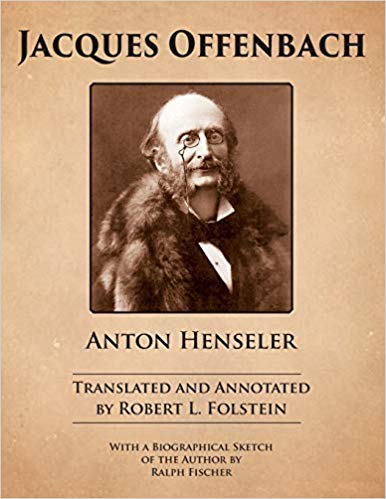
The English version of Anton Henseler’s “Jacques Offenbach,” published by the Operetta Foundation.
You might have heard of the Henseler book: it was one of the first scholarly publications on Offenbach. Mr. Henseler, a student at Bonn University in the late 1920s, wrote his PhD on the early years in Cologne of the composer. He expanded it into a full biography to coincide with the 50th anniversary of Offenbach’s death, which turned into a more massive book published by Max Hesses Verlag.
It’s not a “refraiming operetta” study in the modern sense of the word, but it is a serious musical analysis of Offenbach with which Mr. Henseler tried to start a university career. (His professor in Bonn was the famous Ludwig Schiedermair, head of the Beethoven House among other things.)
For insight into Offenbach’s life, Mr. Henseler secured the support of Anna and Rosa Grünewald, the granddaughters of Offenbach’s younger sister Julia Grünewald (1823-1907). They were then living in Villa Grünewald in Auerbach, Hesse. They opened up about the family history in a way the French descendants did not: they were “steadfast in their refusal to cooperate,” Henseler writes in his preface. The reply he received to all enquiries was “[We] want nothing to do with those who are from Germany.” (Don’t forget, this is hardly 10 years after the end of World War 1.)
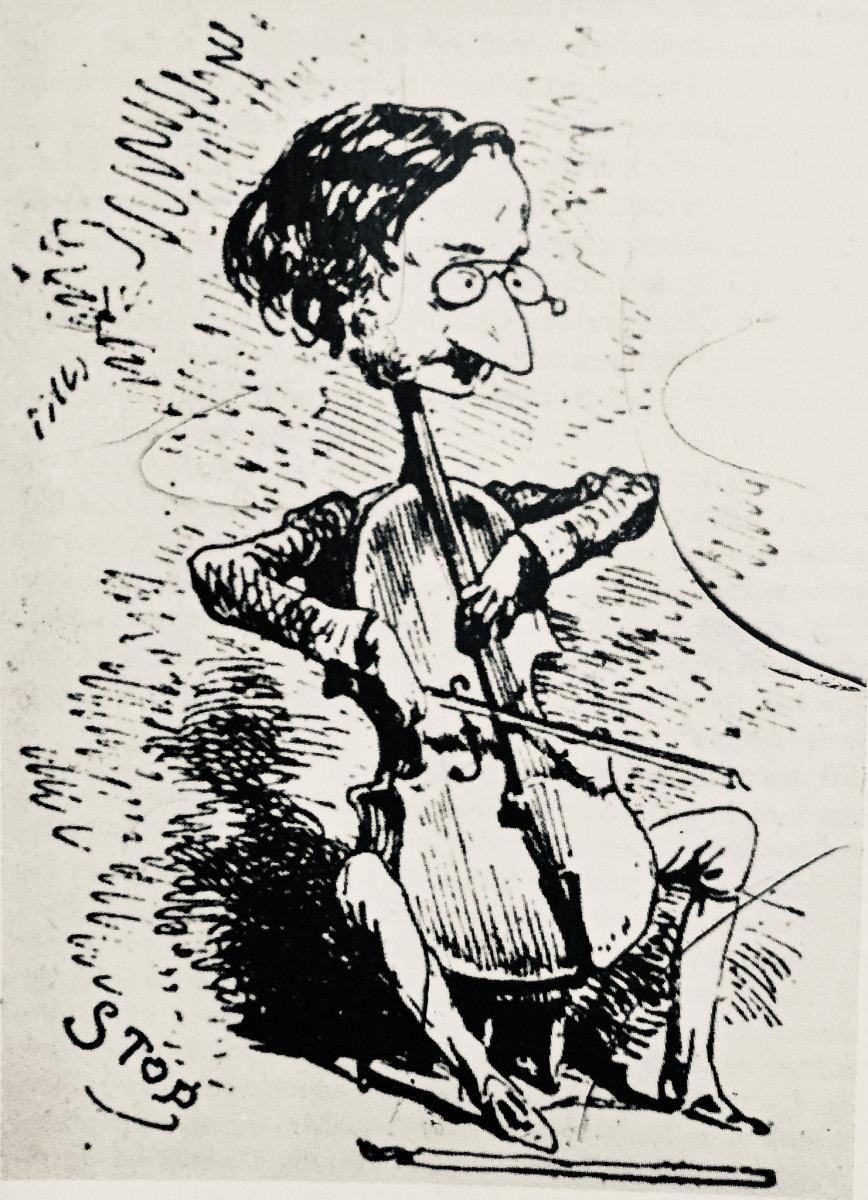
The young Jacques Offenbach playing the cello. A caricature from the 1840s.
Mr. Henseler became friends with the wealthy Offenbach collector Dr. Hans Kristeller (1890-1944) in Berlin who gave the young author a great deal of support and access to his vast collection. He also gave him money to purchase additional valuable objects that he discovered in archives and antique stores in Germany and France.
One of the most important discoveries was made in 1929 when Henseler found the libretto for the German version of Offenbach’s first oper(ett)a L’Alcôve (1849). This version had been presented in Cologne conducted by the composer himself under the title Marielle, oder Sergeant und Commandant.
Once the book was out, Mr. Henseler’s career didn’t go very far, because after 1933 an academic who specialized in Offenbach didn’t have a chance of moving forward in Nazi-Germany. In the new English edition there is a biographical sketch of Theodor Anton Henseler by Ralph Fischer, who also helped Robert Folstein in the translation project. The other big supporter was Michael Miller of the Operetta Foundation in Los Angeles.
When I recently met him in California he excitedly told me of the new book, explaining that German copies of the original version sold online for astronomical prices. On Amazon someone is asking 699 Euros for it.
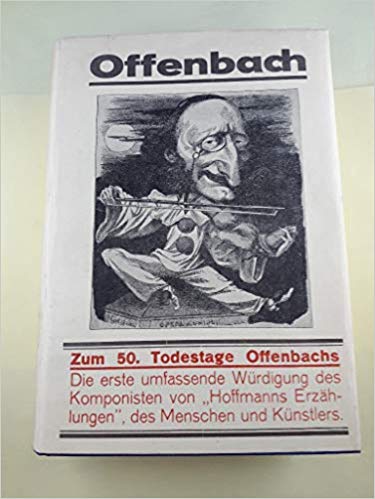
The original version of Anton Henseler’s “Offenbach,” on offer at Amazon for 699 Euros.
So while the world is still waiting for the Jean-Claude Yon book to come out in English, here is a historically important alternative with a very different focus. This is – first and foremost – about the music, in a traditional way. With many musical and textual examples and just as many cross-references to other composers/compositions.
Section 2 starts with the chapter “The Triumph of Operetta” and compares, as an example, the “Galop infernal” tune (“Ce bal est original”) with the almost identical tune by Clapisson for his 1855 Fanchonnette.
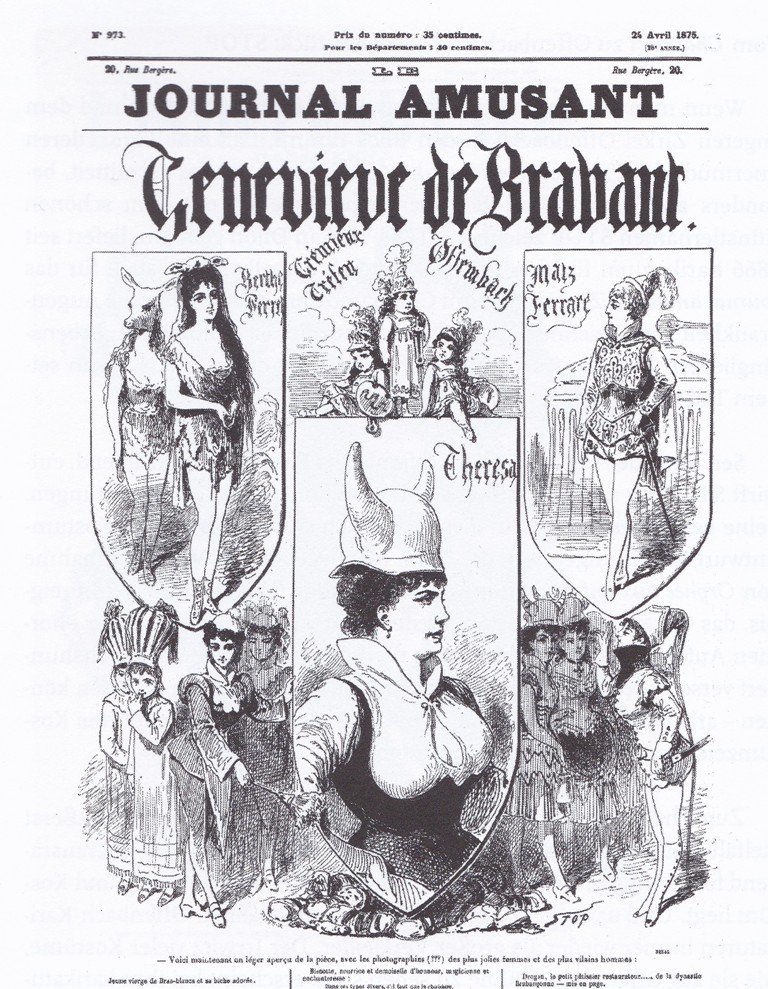
The cover of the “Journal amusant” showing “Geneviève de Brabant” in April 1875.
The “Medieval Parodies” are given vast space (Pont des Soupirs, Barbe-Bleue, Geneviève de Brabant), while La Vie parisienne, Grand-Duchesse, Château à Toto, and La Diva are given a “Comedy of Manners” chapter.
In the “Comic Operas” section Mr. Henseler does mention that Hortense Schneider “was criticized for sinking into vulgarity” when she performed the “tipsy song” from La Périchole – a song “that has clear echoes of Wenzel Müller.”
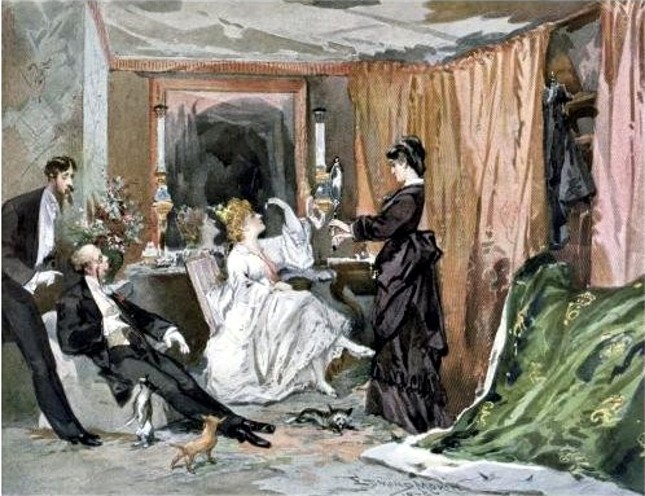
“The Dressing Room of Hortense Schneider,” 1873. Painting by Edmond Morin.
What the “vulgarities” are and how they influences the success of Périchole and other famous Schneider hits, and how they define what “operetta” meant for many people is not discussed. It’s briefly hinted at in the introduction where Mr. Henseler says that Offenbach’s works are “always controversial.” He wants to be the first to present “an objective and well-documented study of the man, his personality” and the oeuvre.

“Die neuesten Noten des Herrn Jacques Offenbach,” i.e. the latest compositions from Mr. Jacques Offenbach. From: Kikeriki, 1865.
For a sharper focus on the “controversies” you should stick with the recent Laurence Senelick book which is more in tune with current operetta debates and has a wider (and different) scope. Nonetheless, this is an important and interesting addition to the English language book list on Offenbach, especially since the other recent biographies and books by Ralf-Olivier Schwarz and Peter Hawig have all been in German (Jacques Offenbach: Ein europäisches Porträt, Der “andere” Offenbach etc.).

Ralf-Olivier Schwarz’ “Jacques Offenbach. Ein europäisches Porträt.” (Böhlau Verlag, 2018)
And the recent Yon publication M. Offenbach Nous Ecrit: Lettres Du Compositeur Au Figaro is in French. (For more details on that book, click here.)
So, a huge thank you to Mr. Folstein for finishing this translation project (which is easy and great to read in English), and also to Mr. Miller for publishing the title as part of his Operetta Foundation activities which already include an English version of Stefan Frey’s Kálmán biography.
